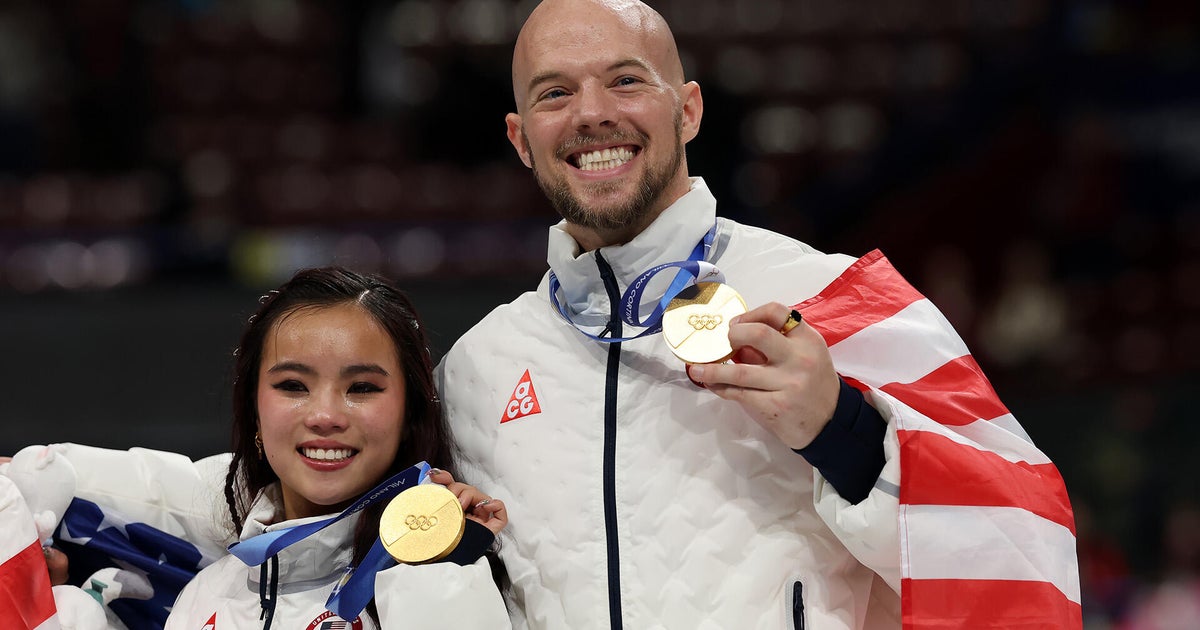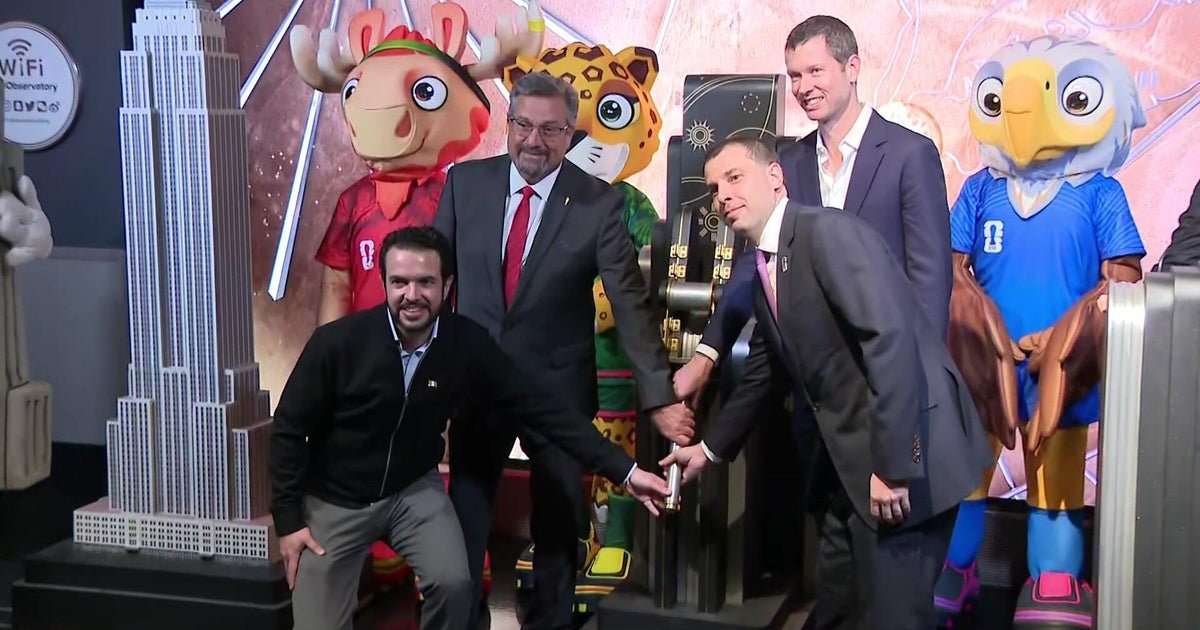Athletes Tell Anti-Doping Agency To Take Action On Russia
MONTREAL (CBSNewYork/AP) — Olympic gold medalist Beckie Scott gave a speech Thursday that reminded all the leaders at the World Anti-Doping Agency why they're doing all this work.
Scott, the Canadian cross-country skier whose gold-medal celebration came years after the race because a doper beat her, told WADA's foundation board that athletes want the agency to use its influence to ensure Russia won't compete at the upcoming Olympics if there's no guarantee they're clean.
Scott said athletes want an expanded investigation into Russian sports, beyond track and field, and they want to know that when they line up in Brazil later this year, they'll be competing against clean athletes.
"We put this call out in November and were deeply disappointed with the lack of decisive action and follow-up," said Scott, who gave a similar speech at WADA's last big meeting, only to be rebuffed by agency leadership.
Scott, the chair of the WADA athletes committee, said athletes understood the "utter, complete implausibility of (Russia's doping system) being in place to just service track and field."
"That the doping was so widespread and nothing was done is almost incomprehensible to the athletes' community," she said.
This week, WADA agreed to investigate allegations, delivered by whistleblowers Vitaly and Yulia Stepanov, that four gold medalists from the Sochi Olympics used steroids.
But before that revelation, the Russian investigation had focused on track and field, even though the leader of the investigation, Dick Pound, made it clear in his report that cheating wasn't confined to one sport.
Scott outlined a four-item list of requests from athletes around the world, including that WADA use its influence to ban Russia from the Olympics.
Also on the list: immediate penalties for those who violate anti-doping code in extraordinary cases; sanctions for serious noncompliance; and better methods to take care of whistleblowers.
Scott said she understands that it's track's governing body, not WADA, that has final say on whether Russia's track team competes at the Rio Olympics. The IAAF will meet next month to determine Russia's future. But, Scott said, WADA can shape decisions and needs to use that power with respect to Rio.
She criticized WADA's slow-moving investigation process, one the leadership is trying to improve.
The Stepanovs sent dozens of emails to WADA from 2010-14 but no action was taken until the information was given to a German TV network. CBS' "60 Minutes" also aired the Stepanovs' story Sunday.
"If we don't lead investigations, and not just follow up on TV programs, if we don't sanction, we lose athletes' belief in the system and lose the belief that winning clean is possible," Scott said.
"60 Minutes" reported that Grigory Rodchenkov, the former director of the drug testing lab at the 2014 Winter Olympics in Sochi, Russia, claimed in recorded online video conversations that he knew of at least four Russian gold medalists who used performance-enhancing drugs and said his lab covered up their positive test results by switching tainted urine samples with clean ones. Rodchenkov also alleged the FSB Russian intelligence agency was involved.
Yuliya Stepanov, a former elite Russian runner who admitted to doping at the direction of her coaches and team medical staff, and her husband, Vitaly, who worked at Russia's national anti-doping agency, RUSADA.
Together, the couple decided to expose the systemic doping in Russia's athletics program. They both lost their jobs and now live in the United States.
"The evidence confirmed what a lot of people have believed over the years. This is not just a few athletes obtaining performance-enhancing drugs. This was a system orchestrated by the sport leaders to ensure that they won at all costs," said Travis Tygart, CEO of the U.S. Anti-Doping Agency, who has been advising the Stepanovs.
Yuliya secretly recorded video of athletes admitting to taking performance-enhancing drugs, including 800-meter runner Mariya Savinova, who won gold in London in 2012.
"My coach helps to cover up the tests," Savinova said in the video. "There is no other way to do it. Everyone in Russia is on pharma."
The FBI is investigating the allegations made in the "60 Minutes" report, CBS News reported.
The Russian sports ministry said it is "certain" about the transparency of doping controls that were in place during the Sochi Games, adding that its stations employed foreign workers and had independent observers on hand.
(TM and © Copyright 2016 CBS Radio Inc. and its relevant subsidiaries. CBS RADIO and EYE Logo TM and Copyright 2016 CBS Broadcasting Inc. Used under license. All Rights Reserved. This material may not be published, broadcast, rewritten, or redistributed. The Associated Press contributed to this report.)







